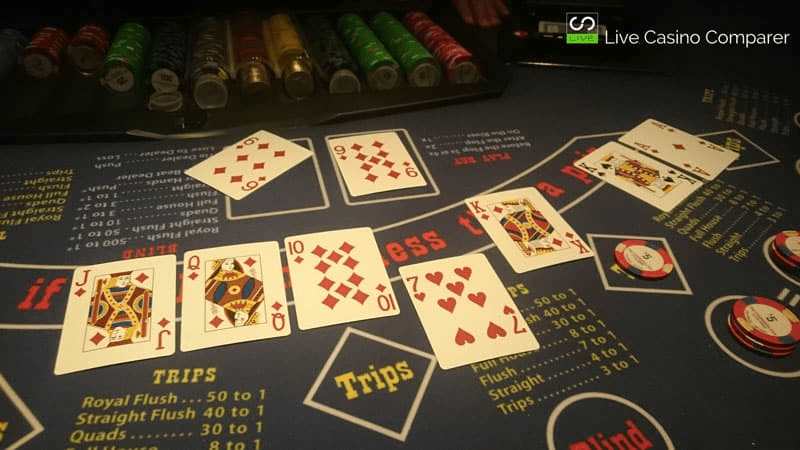Self-exclusion programs serve as an important tool of assistance for individuals seeking to abstain from gambling in the US and around the globe.
A system that has unfortunately not been universally applied across jurisdictions, it provides a vital safety net, and yet the current infrastructure leaves much to be desired.
The National Council on Problem Gambling (NCPG) states “2 million U.S. adults (1 percent) are estimated to meet the criteria for severe gambling problems in a given year. Another 4 million to 6 million (2 percent to 3 percent) would be considered to have mild or moderate problems with their gambling.” And those estimates might be conservative.
In reality, the U.S. federal government and many states have never made a significant investment researching the prevalence of gambling addiction. More worrisome, research suggests that with the massive expansion of sports wagering and online gaming happening, prevalence rates are potentially increasing. Honestly, the number of persons struggling is irrelevant to this discussion, as we know people have and do struggle, and there must be supports in place to assist. Self-exclusion is one of those vital instruments.
Self-exclusion Programs
This is not a new concept to anyone in the gambling ecosystem, as self-exclusion programs have been around for decades. They have and continue to vary in their presentation. In the past five years or so, we have increasingly seen the gaming industry challenged on its commitment to foster these conversations and advancement of programs.
One of the initial questions that remains a part of the conversation surrounding self-exclusion, is this truly a “tool” needed in the industry’s proverbial responsible gambling toolbox? Secondarily, does self-exclusion work as an effective means to an end in addressing gambling addiction? Thirdly, what role does this industry need to play in managing these programs?
First and arguably most importantly, we need to make a seismic shift in the language that we use. We need to begin by removing the term “responsible gambling/gaming” from anything related to voluntary self-exclusion (VSE). Someone looking to utilize voluntary self-exclusion is way beyond any responsible gambling tool or program.
We need to separate and foster an appreciation and understanding about the difference between “responsible gambling” and “problem gambling.” It is an all-too-common theme recently that the industry substitutes one term for the other. Someone looking to utilize voluntary self-exclusion has likely suffered a tremendous amount of harm from gambling and needs to abstain from it. Self-exclusion is an important program for an individual who is struggling with a gambling addiction or has the potential for their gambling to become problematic.
This is not a new concept to anyone in the gambling ecosystem, as self-exclusion programs have been around for decades. They have and continue to vary in their presentation. In the past five years or so, we have increasingly seen the gaming industry challenged on its commitment to foster these conversations and advancement of programs.
One of the initial questions that remains a part of the conversation surrounding self-exclusion, is this truly a “tool” needed in the industry’s proverbial responsible gambling toolbox? Secondarily, does self-exclusion work as an effective means to an end in addressing gambling addiction? Thirdly, what role does this industry need to play in managing these programs?
First and arguably most importantly, we need to make a seismic shift in the language that we use. We need to begin by removing the term “responsible gambling/gaming” from anything related to voluntary self-exclusion (VSE). Someone looking to utilize voluntary self-exclusion is way beyond any responsible gambling tool or program.
We need to separate and foster an appreciation and understanding about the difference between “responsible gambling” and “problem gambling.” It is an all-too-common theme recently that the industry substitutes one term for the other. Someone looking to utilize voluntary self-exclusion has likely suffered a tremendous amount of harm from gambling and needs to abstain from it. Self-exclusion is an important program for an individual who is struggling with a gambling addiction or has the potential for their gambling to become problematic.
The most efficient outcome
In a dream scenario, the customer and the operator can overcome the challenges, stigmas and perceptions of a self-exclusion program. The fantasy scenario looks like a universal self-exclusion program, communicating across multiple jurisdictions. In this scenario, a single program would be held and run by an educated and objective third-party entity. This group would have trained professionals that can assist someone in need understand the implications of a self-exclusion program, what it means both in the short and long term, and how to get on and off the list.
Better yet, while learning about the list and how to get on it, those trained individuals would be able to provide the patrons information and resources for support for the continuation of care as they begin their journey to abstention from gambling.








0 Comments